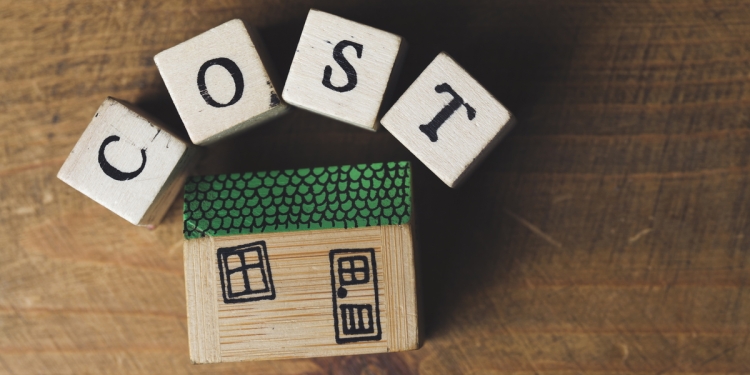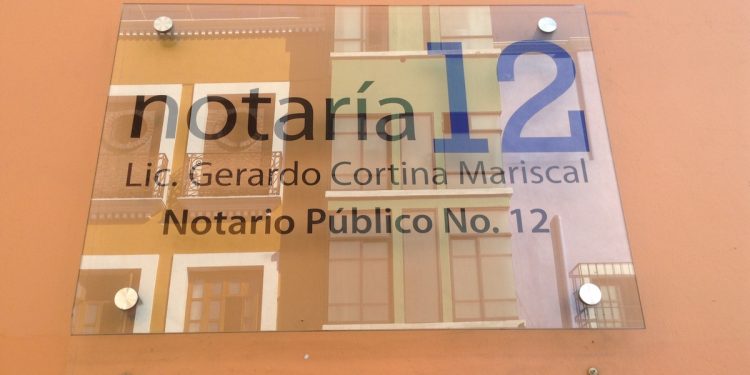When you buy a property in Mexico, you’ll be presented with a range of ‘closing costs’ that usually add up to between 5% and 10% of the property’s sale price. When you eventually come to sell your Mexican property, the buyer will pay most of the closing costs, but there are also selling costs and taxes you will need to account for.
The three main costs when you’re selling a property in Mexico are:
- Selling fees;
- Professional service fees; and
- Taxes.
Selling fees
It’s possible to market and sell your property without the services of a local realty agent; however, as we explain in our Guide to Realty Agents in Mexico, a good realty agent provides a marketing service, a conduit between the negotiating parties, and someone who will help to work through the paperwork to bring a property sale to successful completion.
Realty agents in Mexico typically charge between 5% and 8% of the sale price in commission—and you need to add Mexican sales tax (IVA) to this (16%), so if the agent’s commission is 5%, the tax-inclusive payment will be 5.80% of the final sales price; and if the agent’s commission is 8%, the tax-inclusive payment will be 9.28% of the final sales price.
Professional fees
In Mexico, the role of the Notary Public is paramount in property transactions. As we explain in our Mexico Real Estate Guide, a Mexican Notary Public is a legal professional with very important statutory roles. The fees for the Notary Public are paid for by the buyer. Some buyers also choose to hire a lawyer, which can add several thousand US dollars to their total fees, but this is not necessary for most transactions. If the property you are selling is held in a Bank Trust (fideicomiso), then you will also need to budget for a ‘trust cancellation fee’ that is levied by the bank; the amount varies, but you should budget for around US$1,000 to cover this.
Professional Assistance Services for Real Estate
Find professional assistance service providers who can provide consulting and support to help you with your property-related transactions in Mexico
Taxes on the sale of residential property in Mexico
Taxation on residential property sales is a complex area of Mexican tax law and every case will be slightly different depending on the circumstances. Also, keep in mind that tax laws are subject to reform and because house purchases tend to be long-term investments, the tax laws which apply today might apply entirely, in-part, or not at all when you come to sell your property years from now.
These are the key principles of residential property taxation as of the date of this article, and guidelines here are intended to help you compose an estimate of the taxes you will be expected to account for when you sell a residential property in Mexico. (Different tax rules and rates apply when you sell commercial property.)
We recommend that you seek professional advice from a Notary Public, tax accountant, or other professional/legal service firm in Mexico to get a detailed appraisal of your situation.
Note also that if you are not a Mexican national then you might also be liable to taxes in your home country and you should seek advice from a specialist tax accountant in that respect, too.
Tax Calculations
Taxes due on the sale of residential property are calculated by the Notary Public, who also withholds these amounts for direct transfer to the Mexican Treasury. The tax law makes each Notary Public fully liable for taxes due, so they will absolutely ensure that the rules have been followed and certify that sellers qualify for any exemptions and deductions they are claiming for tax relief.
Capital Gains Tax
Mexico applies a capital gains tax on residential property of 25% on the gross sales value of the transaction without any deductions OR between 1.92% and 35% on the value of the gain (purchase costs less allowable exemptions and deductions): the percentage is calculated on a sliding scale in relation to the gain and we recommend you assume 35% as residential property sales with a gain above $250,000 pesos (c.$13,000 US dollars) will be subject to this rate.
One-time tax allowance exemption
A one-time tax allowance exemption is available under Article 92, Fraction XIX a) of Mexican income tax law that reduces the tax liability for many family homes, although you and the property must meet certain criteria to qualify for the exemption:
- you must be resident in Mexico* with a Mexican tax ID (known as a RFC, or Registro Federal de Contribuyentes); and
- the property you’re selling must be your primary residence in Mexico; and
- the land subject to the sale must not exceed three times the size of the construction on that land (measured in square meters); and
- you can only claim this exemption once every three years.
The flat-rate exemption is the peso equivalent of 700,000 UDIs; the value of UDIs fluctuates and you can get current UDI exchanges rates on the Bank of Mexico website. At the time of writing, 700,000 UDIs equates to approximately $5.06 million Mexican pesos, and you can deduct this amount from the sale price if you qualify.
Co-titled property
If the same home is properly co-titled with your spouse or other family member and they are resident in Mexico* with a Mexican tax ID, and the house is their primary residence too, you can deduct an additional 700,000 UDIs in their name.
The tax-deductible allowance is not automatic: you must qualify, and you must prove the qualification. Talk to your Notary Public about how to arrange this and what you need to do to present the necessary records for proof.
Talk with a licensed accountant or other professional firm who is experienced in property matters about getting a RFC if you hold legal residency in Mexico but don’t currently have a RFC number and want to use this as a means to claim the tax deductible allowance when you sell your residential home.
* Mexican income tax law does not expressly state whether the foreign person selling a property must have temporary or permanent residency status to avail themselves of capital gain tax exemptions; it does, however, expressly state that the seller must be selling his/her primary residence in order to qualify for tax exemptions on capital gains. The Notary Public dealing with the matter will interpret the law; some will apply the capital gains exemptions only if the seller has residente permanente status; some Notary Public offices may apply the exemptions to foreign residents with residente temporal status. You can read about the differences in these two residency statuses on our Mexican visas and immigration page.
Deductions allowed for capital improvements
You can deduct the costs of any capital improvements (e.g. building extensions, new flooring, swimming pools, new rooms) while you owned the property, as well as some closing costs commonly incurred when purchasing a home. You need official receipts —in Mexico, these are known as ‘facturas’— for all services and building work to claim these allowances when you sell, so be sure to take advice from your Notary Public and/or accountant on how to account for these—and follow it.
Any capital improvements made using a firm or builders who didn’t issue you with facturas for the work cannot be deducted. General maintenance and home improvements, like remodeled kitchens or new bathrooms, do not count as capital improvements.
The currency exchange rate effect
In most towns and cities across Mexico, home prices are quoted in Mexican pesos when they are offered for sale. However, a few places and most notably in Los Cabos, Puerto Vallarta, San Miguel de Allende, Ajijic/Chapala, and Cancun/Riviera Maya, home prices are often seen quoted in US dollars.
Even though the home may be marketed in dollars and the transaction amounts may be quoted in dollars, the deed will show the amount in Mexican pesos at the exchange rate prevalent on the date of the closing. Any capital gains are calculated only in Mexican pesos and therefore, shifts in the exchange rate can affect the capital gain calculation as expressed in a foreign currency.
Learn more: Read Exchange Rates and Capital Gains on Your Mexican Home to understand how foreign exchange rates can influence capital gains calculations on property in Mexico, because your tax liabilities when you come to sell are calculated in pesos, not dollars.
Selling your Mexican home as a non-resident
If you are not a resident in Mexico and/or you don’t have a Mexican tax ID, you cannot claim the one-off allowance exemption explained above, although you can claim qualifying deductions, so long as you have the official receipts (facturas) to prove the expenditures which can be deducted.
Your Notary Public is a key contact
The Notary Public (in Spanish, Notario Público) is the most important professional person you will deal with when you buy and sell property in Mexico. Don’t rely on hear-say and instead get the Notary Public to assess your individual situation and the taxes that will likely apply to it.
When you’re buying property, talk with the Notary about what you need to do to plan your estate efficiently, how to structure your arrangements, and how to keep the proper records you need to ensure that when you come to sell your property you (or your heirs) are prepared.
Every property transaction has its own quirks and unique characteristics; cultivating a good relationship with your Notary Public is a crucial aspect of successful property investment in Mexico.
Learn more about property in Mexico
We publish a wide range of guides and articles about property and real estate in Mexico:
- Learn about the costs and taxes of buying property in Mexico
- How do property owners value their Mexican house?
- What drives house prices in Mexico
- Putting your house on the market for sale
- Comprehensive guide to buying and selling real estate and renting property in Mexico
- View the latest articles about real estate in Mexico
The information published in this article is provided for general information in good faith and is not intended as personal, legal, financial or investment advice.
Mexico in your inbox
Our free newsletter about Mexico brings you a monthly round-up of recently published stories and opportunities, as well as gems from our archives.
















